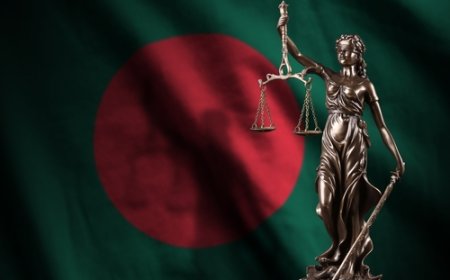Politics has changed once again
We have an uneasy truce but still a long way to go. If the BNP doesn't understand that a bare minimum of reform is necessary to end the impasse, give it legitimacy , and help set the table for good governance, then the nation will lose, including BNP.
Politics has changed once again. How will the next 6-7 months look like? Here is my take.
Let me be absolutely clear about something. if I understand it correctly, the offer to have an election on February is a conditional offer and a February election will only happen if the parties can reach to an agreement on key reforms. In other words, the election timeline of February only works if an agreement can be reached on key constitutional and institutional reforms.
The key question here is: what is the scope or boundary of these key reforms?
Since the focus has always been on state reform or structural reforms of the state institutions, rhetoric like "reforms necessary only for holding an election" is meaningless. This rhetoric was not useful in the past and it is not relevant right now.
Moreover, what we often forget is this is not the last election of this republic and therefore we just can’t wrap around first-aid bands to critical wounds especially when surgery is necessary.
We need to design a system, a system that will enforce some rules and those rules will create new incentives and constraints for the political actors, forcing them to change their behaviour.
The bottom line is this IG wasn’t a Caretaker Government and it wasn’t formed just to ensure alternation of power. Implementing reform that would change the power structure was it key agenda and for that it formed commissions where all the political parties participated. Therefore, there was and is an explicit approval for reform.
Moreover, let’s not forget, on record, every political party has acknowledged the need for reform. You can’t find one political party in Bangladesh right now that doesn’t identify absence of check and balance, executive dominance, an all-powerful Prime Minister as sources of all evil and having an election and just an election can’t solve these.
In the post-uprising Bangladesh, we can’t go back to an autocratic democracy which in no time can transform itself into a full-fledged autocracy.
If all the political parties agree on the key principles, the question is: why can’t we agree on the mechanisms to achieve those principles. It may seem that BNP has won the battle, but make no mistake -- a war zone is waiting for the party if it doesn’t understand its responsibility.
Let’s also be clear about something: whereas BNP’s 31 point charter is a great starting point (for which the party deserves appreciation), it’s still too vague, doesn’t provide key details and fails to offer mechanisms. There is a skepticism about the party’s stance on reforms and the more the party falls back to 31 points instead of detailing out the mechanism, the more skepticism it invites. "Trust me and I will do everything" -- is not a viable strategy because our previous interactions with the party don’t help us to be put absolute on the party.
However, for BNP, this can be the beginning of a new interaction game where the party, after getting the election timeline sorted, start focusing on reform. It already agrees on having an upper chamber, now please explain to us your position on PR.
It’s great if you agree on PR and if not, please tell us why. Tell us- how, without PR, you will ensure check and balances. Tell us how you want to ensure that the constitutional and oversight bodies will not be captured by executive. Don’t agree with NCC? Fine. There are other options on table. Tell us which one you prefer and if none, why? Tell us, why we can’t have direct election for women? Tell us, how we can ensure that the PM will not control everything? Either agree with us or convince us that your proposals are better. You can no longer ignore the call for reform because the February timeline relies on agreement on key reforms.
Going forward, I see three different pathways:
First of all, the ideal one where BNP will function as a sensible actor, will agree to key reform, will enjoy the support of the civil society who can play an important role in bridging any divide, we will have a July Charter and an election.
Secondly, BNP may fail to offer detailed outlines and continue referring to the post-election parliament which will create frustration and may create an incentive for the IG to declare that since we haven’t reached any consensus, February election is off. If BNP doesn’t budge on the key reform demands, very unlikely that it will get support from anywhere. The outcome -- choosing the pathway of confrontational politics.
Thirdly, BNP remains reluctant, but wins the confrontation and then forces a February election. If the party chooses this pathway, it will have minimal legitimacy to run the government and trust on government will extremely low.
BNP has won the battle but will it win the war? It depends on the pathway it chooses. The first one helps it to win the war, the second results in a loss and the third one allows a win but at a high cost. My suggestion for the party is- embrace the key reforms and be the champion of them.
What should NCP do? It is a setback but it can actually translate into a new opportunity. My suggestion would be to create a powerful coordinating unit which will oversee three wings -- the electoral strategy wing, the reform strategy wing, and the election and party manifesto wing.
These three units will feed each other necessary information. In the next 2-3 months, the reform wing should take the lead, get prepared with every technical solution while reaching out to people about key reform proposals. The goal should be to create pressure on BNP so that it agrees on reform and while doing that, legitimize the party. You have to play the long game.
We have a truce and this truce has opened a limited window of opportunity. If we don’t make the best use of it, we are doomed. This is in no way over.
What's Your Reaction?














































































